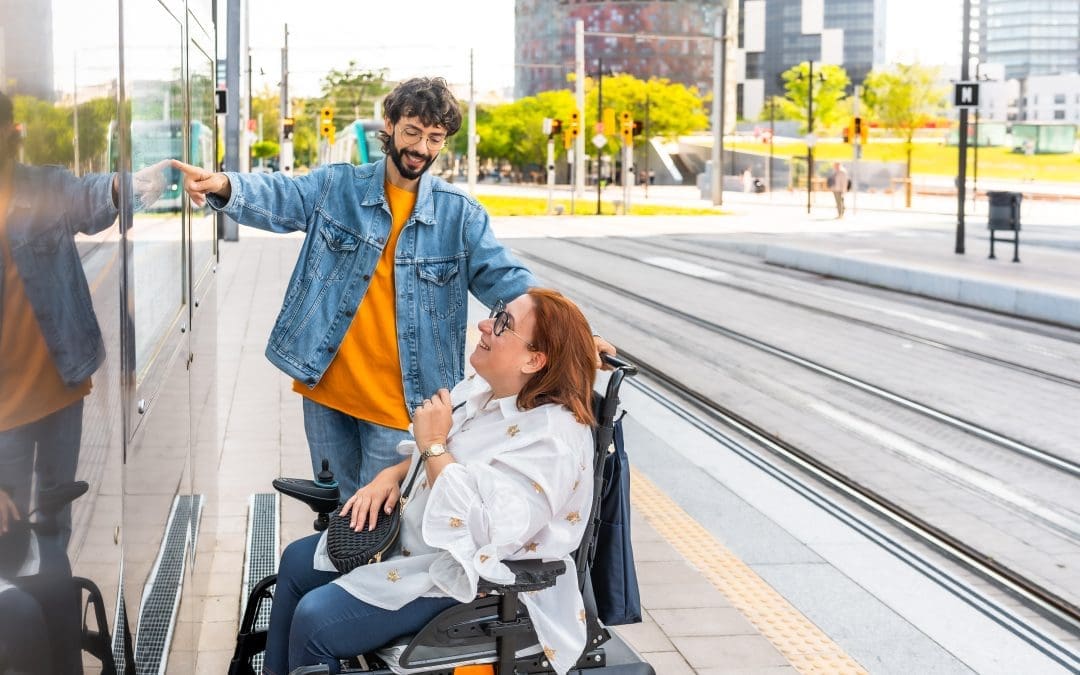Caring Beyond the Wheel: Why Disability Transport Training Matters
Transporting people is always a responsibility but transporting individuals with disabilities requires more than just driving skills. It calls for empathy, practical training, and a deep sense of respect. Disability Transport Training equips drivers, assistants, and service professionals with the essential skills to ensure every passenger is treated with dignity, safety, and care.
Whether you’re behind the wheel of a school bus, healthcare shuttle, or community vehicle, here are seven vital skills you can expect to gain through a structured disability transport training program:
1. Understanding Different Types of Disabilities
The foundation of effective support is awareness. Training begins by introducing participants to various physical, developmental, and neurological disabilities. You’ll learn how different conditions can affect mobility, perception, and communication helping you provide informed and compassionate assistance.
2. Communicating Clearly and Respectfully
Inclusive communication is key. Not all passengers express themselves the same way, and that’s perfectly okay. This part of the training focuses on respectful and adaptive communication methods, including body language, tone, and simple language strategies. It also covers how to engage with individuals with hearing, speech, or cognitive impairments always with patience and dignity.
3. Assisting with Safe Boarding and Exiting
Entering and exiting a vehicle should be smooth and stress-free. You’ll learn safe boarding techniques, how to assist without invading personal space, and how to use ramps, lifts, and secure mobility aids like wheelchairs and walkers. The goal is to make every passenger feel supported, never rushed or unsafe.
4. Prioritizing Health and Safety
Safety is a critical component. The training covers risk management, emergency response procedures, and how to handle medical incidents during transport. You’ll be taught how to manage mobility devices with care and respond calmly under pressure all while ensuring both your safety and that of your passengers.
5. Practicing Cultural Sensitivity and Empathy
In diverse communities, being culturally aware is as important as being technically trained. Courses often explore how culture, religion, and personal values intersect with disability, helping professionals deliver respectful and inclusive service in any setting.
6. Gaining Hands-On Experience
Disability transport training isn’t just theoretical. Programs include practical, scenario-based learning where you can apply what you’ve learned. Through demonstrations, role-playing, and supervised practice, you’ll gain the real-world experience needed to build lasting confidence.
7. Receiving Accredited Certification
Upon successful completion, participants typically receive certification from recognized authorities in health and safety or transport. This certification not only affirms your competency but also enhances your professional credibility in both local and international roles involving passenger care and support.
Is This Training Right for You?
This type of training is ideal for:
Bus or van drivers
Transport assistants
School transport staff
Caregivers or healthcare transport providers
Anyone passionate about creating inclusive travel experiences
Final Thoughts: Empowering Safer, More Inclusive Travel
Disability transport training empowers professionals to move beyond just driving — to truly care, connect, and support. It’s about building inclusive environments where every passenger feels respected, safe, and seen. By learning these essential skills, you’re contributing to a more compassionate and accessible transport system for all.
To get more details, please visit our Transportation and Disabilities Training page.


